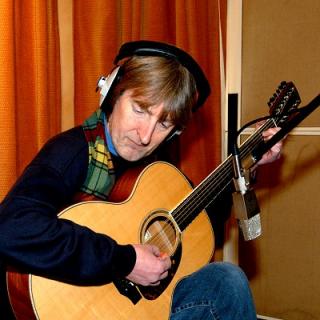
Anthony Edwin Phillips is an English musician, songwriter, producer and singer who gained prominence as the original lead guitarist of the rock band Genesis, from 1967 to 1970. He left in July 1970 and learned to play more instruments, before he began a solo career.
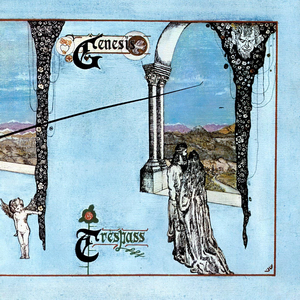
Trespass is the second studio album by the English rock band Genesis. It was released on 23 October 1970 on Charisma Records, and is their last album with original guitarist Anthony Phillips and their only album with drummer John Mayhew.
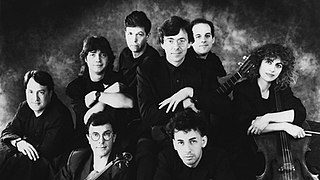
The Penguin Cafe Orchestra (PCO) were an avant-pop band led by English guitarist Simon Jeffes. Co-founded with cellist Helen Liebmann, it toured extensively during the 1980s and 1990s. The band's sound is not easily categorized, having elements of exuberant folk music and a minimalist aesthetic occasionally reminiscent of composers such as Philip Glass.

The Sun Sessions is a compilation album by American singer Elvis Presley, containing songs he recorded at Sun Studios in 1954 and 1955. It was issued by RCA Records in 1976, and had been issued and charted as The Sun Collection in the UK the previous year. It features liner notes by Roy Carr of the New Musical Express. The Sun Sessions features most of the tracks Elvis recorded at Sun studio and were produced by Sam Phillips, the head of Sun Studios. Elvis began his singing career with Sun Records label in Memphis. The album reached number two on the Billboard Country Albums and number 1 on the Cashbox Country Albums charts.

Five Miles Out is the seventh studio album by English recording artist Mike Oldfield, released on 19 March 1982 by Virgin Records in the UK. After touring in support of his previous album, QE2 (1980), ended in mid-1981, Oldfield started on a follow-up with members of his touring band performing the music. The album features the 24-minute track "Taurus II" on side one and four shorter songs on side two. The songs "Family Man" and "Orabidoo" are credited to Oldfield and members of his touring band which included vocalist Maggie Reilly, drummer Morris Pert, and guitarist Rick Fenn.

Private Parts and Pieces VI: Ivory Moon is the eleventh studio album by English multi-instrumentalist and composer Anthony Phillips. It was released in January 1986 by Passport Records in the United States and Canada as the sixth instalment in his Private Parts & Pieces album series. Ivory Moon consists entirely of piano pieces written between 1971 and 1985, with all tracks recorded in August 1985. It is Phillips's first album not to feature him as a guitarist.
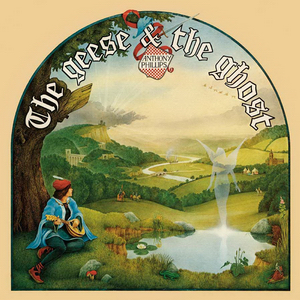
The Geese & the Ghost is the first studio album by English musician and songwriter Anthony Phillips, released in March 1977 on Hit & Run Music in the United Kingdom and Passport Records in the United States. It was originally intended to be an album by Phillips and his former Genesis bandmate Mike Rutherford, but Rutherford's difficulty in devoting time to the project ended the idea. The album reached number 191 on the Billboard 200.
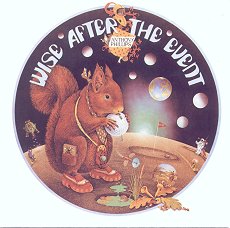
Wise After the Event is the second studio album by English musician and composer Anthony Phillips, released in May 1978 on Arista Records in the United Kingdom and in June 1978 on Passport Records in the United States. After promoting his previous album The Geese & the Ghost (1977), Phillips began to prepare material for a new album. It remains his only album that features himself on lead vocals on each track.

Smallcreep's Day is the first studio album by English guitarist and songwriter Mike Rutherford, released in February 1980 on Charisma Records. It was recorded in 1979 during a period of inactivity from his rock band Genesis, during which Rutherford and keyboardist Tony Banks recorded their first solo albums. The 24-minute title track is based on the 1965 novel Smallcreep's Day by Peter Currell Brown which tells the story of Mr. Smallcreep and the journey of self-discovery he takes through the assembly line of the factory he has worked in for forty years.

Sides is the fourth studio album by English musician and composer Anthony Phillips. It was released in April 1979 by Arista Records in the United Kingdom and in June 1979 on Passport Records in the United States. After completing Private Parts & Pieces (1978), an album of home recordings that Phillips had recorded years before but remained unreleased, Phillips returned to making a commercial record. The UK release saw the first 5,000 copies of Sides packaged with a Collectors Album edition of Private Parts & Pieces.
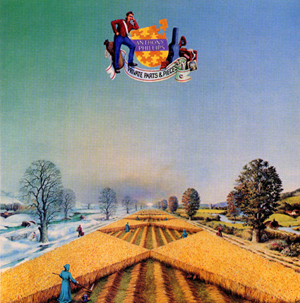
Private Parts & Pieces is the third studio album by English musician and composer Anthony Phillips. It was released in November 1978 by Passport Records in the United States, and in April 1979 by Arista Records in the United Kingdom. Unlike his previous two releases, the album is a collection of demos, out-takes, and previously unreleased material rather than an explicit attempt at a commercial album.

Private Parts & Pieces II: Back to the Pavilion is the fifth studio album by English musician and composer Anthony Phillips, released in April 1980 on Passport Records in the United States and Canada. It is the second instalment in his Private Parts & Pieces album series of previously recorded pieces that had been parts of or intended for other projects. Back to the Pavilion includes tracks recorded for Wise After the Event (1978), music during his time as a member of Genesis, and those commissioned as part of an aborted project to set Macbeth to music. It features musical contributions from Andy McCulloch and his former Genesis bandmate Mike Rutherford.
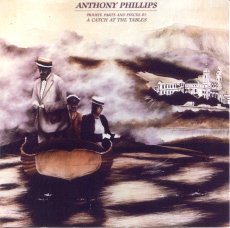
Private Parts and Pieces IV: A Catch at the Tables is the ninth studio album by English multi-instrumentalist and composer Anthony Phillips. It was released in April 1984 by Passport Records as the fourth instalment to his generic album series, Private Parts & Pieces. A release in the United Kingdom followed in 1990 by Virgin Records.

Field Day is a studio double album by English multi-instrumentalist and composer Anthony Phillips, released in October 2005 by Blueprint Records.
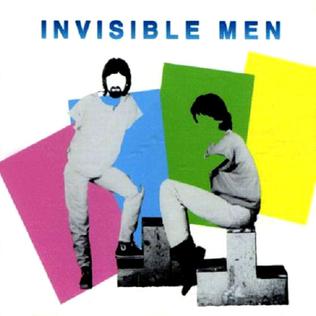
Invisible Men is the eighth studio album by English multi-instrumentalist and composer Anthony Phillips. It was released in October 1983 by Passport Records in the United States and in April 1984 by Street Tunes in the United Kingdom. After he released his Private Parts & Pieces III: Antiques, the third instalment in his generic album series, Phillips started work on his next full studio album. Phillips was pressured by his US label Passport Records to deliver more radio friendly songs, and produced Invisible Men as a collaborative effort with musician and songwriter Richard Scott.

Archive Collection Volume II is the second vault release from Anthony Phillips, following Archive Collection Volume I in 1998. Compiled by Anthony Phillips and Jonathan Dann, it is a 2 CD selection of previously unreleased pieces and variations recorded from 1971 to 1988.

Private Parts & Pieces III: Antiques is the seventh studio album by English multi-instrumentalist and composer Anthony Phillips. It was released in March 1982 by Passport Records in the United States and in October 1982 by RCA International in the United Kingdom as the third instalment to his Private Parts & Pieces album series. After releasing his full studio album 1984 (1981), Phillips entered a collaboration with Argentine musician Enrique Berro Garcia who he first met in 1978.
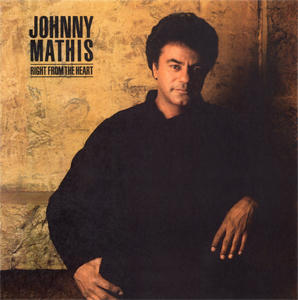
Right from the Heart is an album by the American pop singer Johnny Mathis that was released on March 18, 1985, by Columbia Records. It was his first album without songs that were previously recorded by other artists. The title track is one of the album's four ballads that, along with four of the remaining six up-tempo tracks, delve into the subject of relationships, but it is the synth-driven "Step by Step" and the anthemic "Hold On" on which Mathis take a break from the usual focus on love songs. The former offers the hope that can be found in change that comes gradually until "I can see the way free from yesterday to a new beginning". The latter stresses the importance of being oneself: "Life is a party. Why don't you come the way you are?"

Slow Dance is a studio album by English musician and songwriter Anthony Phillips, released in September 1990 on Virgin Records. It is a 50-minute instrumental suite divided into two parts. The music was composed by Phillips and performed by himself with additional musicians.
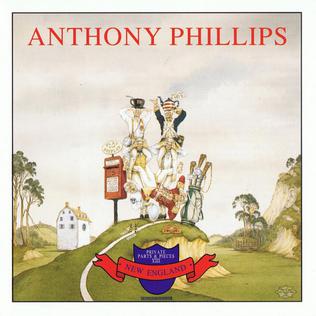
Private Parts & Pieces VIII: New England is a studio album by English multi-instrumentalist and composer Anthony Phillips. It was released in August 1992 on Venture Records as the eighth edition of his Private Parts & Pieces album series.




















